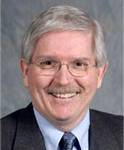Livestock drove ancient Old World inequality
will.ferguson
Today, 2% of the world’s people own more than half its wealth. This rise of the superrich has economists, politicians, and citizens alike wondering how much inequality societies can—or should—accept. But economic inequality has deep roots. A study published this week in Nature concludes that its ancient hotbed was the Old World.
“Think about how people get rich in modern societies. They find clever ways to tie their current wealth into their future income,” Kohler says. “Because land and livestock could be passed to future generations, certain families got even richer over time.”
Find out more
Science
Gears of Biz
Archaeology
Progress Daily
Archaeology News Network
IPR
Cosmos Magazine
WSU News
Civilized
The Economist
Pacific Standard
USA Today
The Guardian




